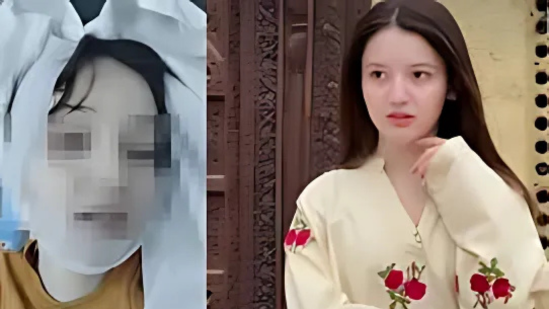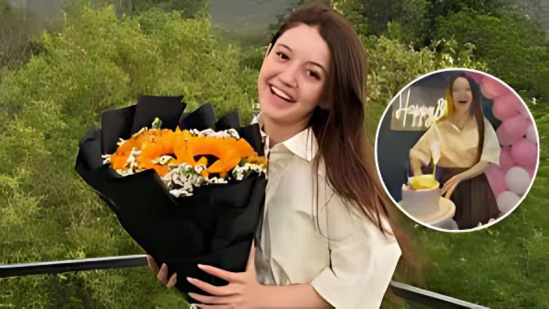
In a heartbreaking and shocking incident, Pakistani TikTok star Sana Yousaf, just 17 years old, was shot dead at her home in Islamabad’s G-13 sector. The young social media influencer, originally from Chitral, had gained a strong following online and was admired for her confidence and digital presence. Her untimely and violent death has sent shockwaves across Pakistan and the social media world.
According to Islamabad Police, Sana was shot at point-blank range by a man who entered her house pretending to be a guest. The attack occurred late at night, and Sana was reportedly hit by two bullets, leading to her death on the spot before any medical help could arrive. The killer fled the scene immediately, and a manhunt was launched by local authorities.
Following the incident, police conducted a swift investigation using CCTV footage and phone data. Within 24 hours, the main suspect, identified as Umar Hayat—also known as “Kaka”—was arrested in Faisalabad. Umar, who is also active on TikTok, reportedly confessed to the murder. He claimed to have been a friend of Sana Yousaf, though the real motive remains under investigation. He is now being transported back to Islamabad for interrogation.
This murder has led to a wave of public anger and mourning, especially on social media platforms. The hashtag #JusticeForSanaYousaf quickly started trending as fans, followers, and fellow influencers demanded accountability and swift justice. Many users pointed out the increasing dangers faced by female influencers, who often face harassment, threats, and stalking just for being in the public eye.
Prominent women’s rights organizations like the Women’s Parliamentary Caucus and the National Commission on the Status of Women (NCSW) have strongly condemned the murder. In their statements, they called for a transparent and speedy investigation and demanded that authorities ensure the safety of women, especially those in online spaces. The case has reopened conversations around women’s safety, freedom of expression, and the responsibility of law enforcement in protecting citizens.
The tragic loss of Sana has not only left her family and fans in deep sorrow but also highlighted the urgent need for digital safety reforms in Pakistan. TikTok, Instagram, and other platforms are now widely used by youth for self-expression, but with it comes exposure to jealousy, toxicity, and criminal threats.
Friends of Sana have shared their grief, calling her a vibrant and hardworking young woman who had dreams of becoming a bigger name in the entertainment industry. Many expressed that her death was not only a personal loss but a national tragedy that reflects the failures in ensuring safety and justice for women.
The authorities are under pressure to deliver justice swiftly. Activists and netizens have warned that if justice is delayed, it could set a dangerous precedent for future cases involving women in media and social networks. There is also growing demand for stronger regulations against stalking, cyber harassment, and physical threats tied to digital activity.
This horrifying incident has also drawn attention to the mental health and emotional toll faced by young content creators. Many social media influencers deal with constant pressure, online hate, and now—real-world violence. Pakistan must now reconsider its approach to protecting its youth, particularly young girls who dare to speak, perform, or create content in a patriarchal and often unsafe environment.
As the case unfolds, the country awaits justice for Sana Yousaf. Her story should become a catalyst for change in digital safety laws, women’s protection policies, and ethical social media usage. She was more than a TikToker—she was a symbol of hope, creativity, and resilience, and her life was cut short due to senseless violence.































